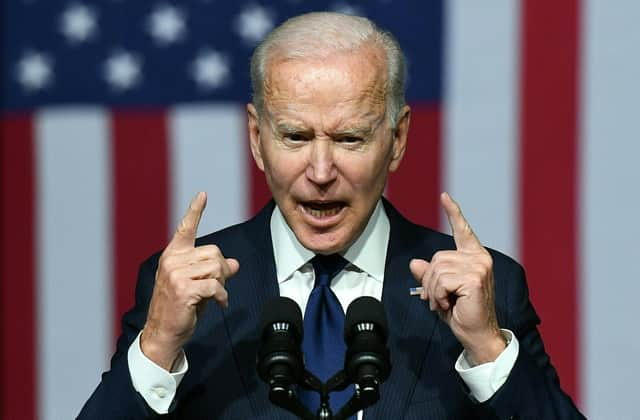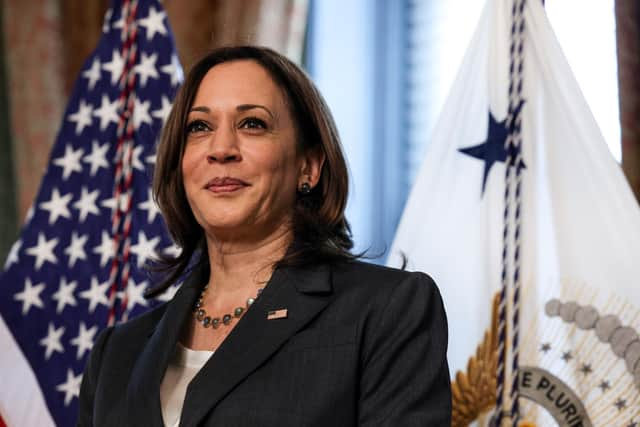US President Joe Biden is pushing for fair global taxation of multinational corporations. Will the UK back him? – Joyce McMillan


The G7 is essentially a group of western powers – the United States, Canada, the UK, France, Germany and Italy – together with their closest Asian ally, Japan, and representatives of the EU; and even in a fast-changing global community, the group still represents more than half of all global wealth, and the seven largest developed economies recognised by the International Monetary Funds.
If the G7 leaders were hoping for more tranquil times, though – following the departure from office of Donald Trump, who famously disrupted the G7 meeting in Canada in 2018 – then it looks as though they may be in for a disappointment; because contrary to expectations, the US administration of the man once known as “Sleepy Joe” Biden – while strongly supportive of international co-operation – seems to be approaching the tasks now facing the international community with a seriousness, and even sometimes a radicalism, that some of the US’s traditional partners find a little unnerving.
Advertisement
Hide AdAdvertisement
Hide AdIt’s not that Biden is anything other than a middle-of-the-road politician, a traditional Democrat who seeks to uphold the US constitution, while always recognising that the chief business of America is business. In these pandemic times, though – and after the far-right disruption of the Trump presidency – these simple values make him look like an impassioned campaigner for democracy and social justice.
And if we add to the equation the unique pressures of the moment – including the need for massive public investment in Covid remedial recovery, and for a comprehensive Green New Deal to help pivot the US economy to a low-carbon future – it becomes possible to see Biden, who at 78 was born during the wartime presidency of Franklin D Roosevelt, as the bringer of a new Rooseveltian age of public investment, of welfarism, and of willingness to confront the various vested interests that, in the long age of neoliberalism, have been allowed to loot the wealth of nations, reduce the share of wealth paid to ordinary workers, and steadily impoverish our public coffers.
All of which helps to explain why not-so-sleepy Joe Biden will arrive at Carbis Bay next week armed with a plan for the fair global taxation of multinational corporations that could mark the beginning of a new age of serious intergovernmental co-operation on tax, and an end to the global game of shifting individual wealth and corporate profits into low-tax countries and tax havens.
The plan is to set a lower limit – the current figure under discussion is 15 per cent, although Biden initially suggested 21 per cent – on the amount of tax any corporation will pay, so that if they avoid tax in one country, they will be obliged to pay up in another; and estimates suggest that even at this modest rate, this single new measure could net the UK government an extra £200 million from BP alone, and the EU an extra 170 billion euros a year from multinationals operating there.


The question, though, is how the other leaders assembled at the G7 will respond to Biden’s apparent determination to confront those vested interests which almost all western governments have for decades been so eager to placate and to court.
The EU and the UK have already been visibly disconcerted, and somewhat outflanked on the left, by the Biden administration’s support for the waiving of patents for Covid vaccines; both the EU and the UK, heavily lobbied by big pharmaceutical companies, are still opposing the measure at the World Trade Organisation.
They may even be observing with slight alarm, or admiration, his apparent fearlessness in overturning Donald Trump’s decision to allow oil and gas exploration in a huge Alaskan nature reserve, to the fury of corporations that stand to lose billions; or, for that matter, his willingness to risk the rage of white supremacists by going to Tulsa on Wednesday, to speak at a memorial event for more than 300 black Americans killed 100 years ago this week, in an until now barely acknowledged rampage of white violence and destruction in the prosperous black suburb of Greenwood.
Whether Biden’s willingness to risk these confrontations has to do with his age – notably the fact that he is unlikely to seek a second term – or with a purely practical response to the pressures of the moment, what’s clear is that his administration is now presenting the other G7 governments with a set of crucial decisions.
Advertisement
Hide AdAdvertisement
Hide AdIf they support Biden’s approach, what they stand to gain – in terms of revenue and clout – is already obvious; the only question is whether they are prepared to ditch the tired ideological legacy of the 1980s, and embrace these new times with some enthusiasm and vision.
And if they prevaricate, and eventually block most of Biden’s initiatives, then they will both undermine a key element of his presidency – and therefore the chances of a Kamala Harris presidency to follow – and also restore the global initiative to the well-funded forces of reaction now ramping up their rhetoric against Joe Biden and his policies, in the United States and beyond.
The governments of the G7 already know, of course, where that leads; to the chaos of Trumpism, the strengthening of chauvinistic nationalism, the collapse of meaningful international co-operation, and a world of disinformation and delusion, sunk in possibly terminal denial about the gravity of the issues we face. In Cornwall next week, Joe Biden will be asking the leaders of the West to begin to rise to the challenges of our century, or to become complicit in a historic and terrible failure; let’s hope, for all our sakes, that they decide wisely.
A message from the Editor:
Thank you for reading this article. We're more reliant on your support than ever as the shift in consumer habits brought about by coronavirus impacts our advertisers.
If you haven't already, please consider supporting our trusted, fact-checked journalism by taking out a digital subscription.
Comments
Want to join the conversation? Please or to comment on this article.
